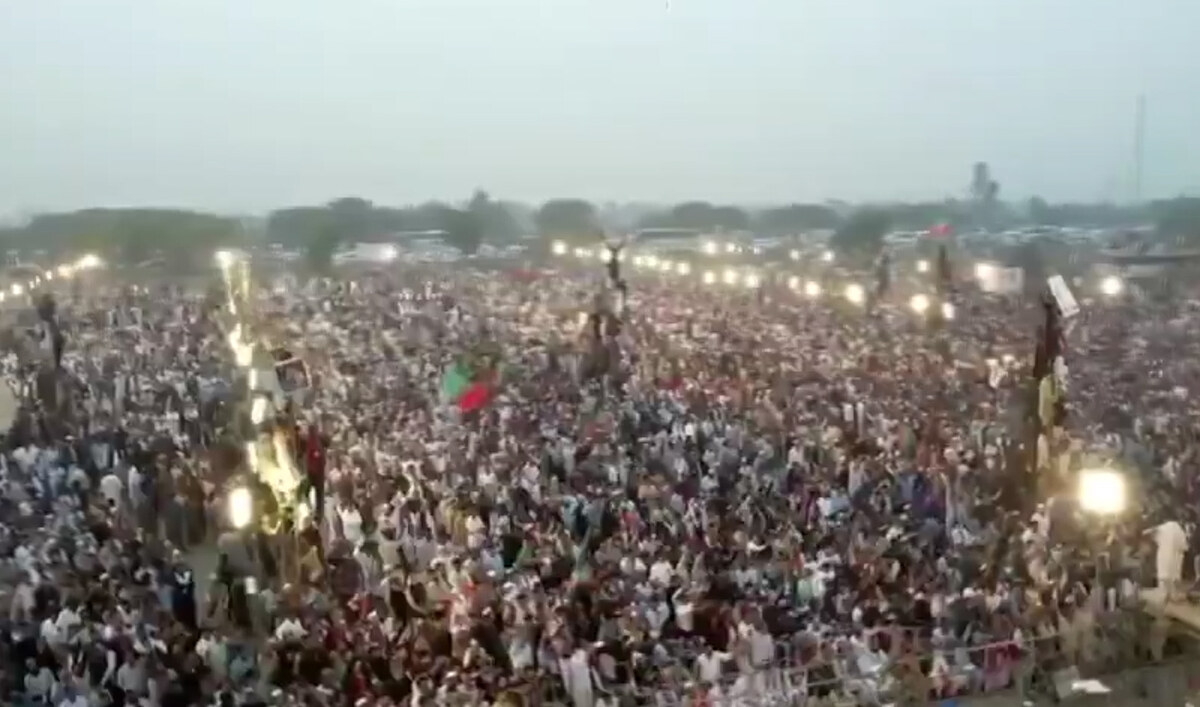ISLAMABAD: Pakistan's top court on Thursday agreed to remove parts of a verdict in a blasphemy case that were challenged by religious parties and scholars and over which nationwide protests have been held in recent months, with a religious political party calling off a planned strike in Islamabad.
The controversy began on Feb. 26 when a Supreme Court bench of which Chief Justice Qazi Faez Isa was a part overturned the conviction of Mubarak Sani, a member of the minority Ahmadi community who was charged with blasphemy in 2019 for distributing Islamic literature. The top court said the charges against Sani had not been criminalized till 2021, and ordered his release. In a second verdict following a plea by the Punjab government, the Supreme Court on July 24 said its February ruling had not deviated in any way from past decisions of the Federal Shariat Court and the Supreme Court in approving the bail of Sani.
Infuriated supporters of religious parties, mainly the Tehreek-e-Labbaik Pakistan (TLP), subsequently held protests nationwide, accusing Isa of committing blasphemy and calling for a review of his ruling. The Punjab government challenged the Supreme Court's order, saying paragraph 9, among other parts of the ruling, needed to be modified as the rights of citizens were not absolute and instead subject to law, public order, and morality.
“After hearing detailed arguments … the court will review its ruling of February 6, 2024 and its verdict of July 24, 2024,” the Supreme Court said in a short order, saying it would omit certain paragraphs following recommendations by scholars and the Council of Islamic Ideology, which advises the government on the compatibility of laws with Islam.
The court also said the expunged paragraphs could not “be cited as precedent” in any future verdict, advising the trial court hearing Sani’s case to review the charges imposed against him in the light of the law.
Independent observers and analysts widely see the court’s ruling as coming out of pressure from right-wing groups who have in the past blocked major highways, held violent protests and brought entire cities, including the capital, to a standstill over cases involving blasphemy.
Blasphemy is a sensitive topic in Muslim-majority Pakistan where mere accusations of the offense have resulted in public lynchings and mob justice. Pakistanis are particularly sensitive about offenses committed by Ahmadis, whom they consider heretics.
Human rights groups say the country's blasphemy laws are often misused to settle personal scores.
Following the court’s order, the TLP and other religious groups who had announced a strike in Islamabad on Thursday called on supporters to return home.
The court’s order eased tensions in the Pakistani capital, which had been on high alert all day, with heavy deployment of police and the administration putting up shipping containers to block roads leading toward government buildings in Islamabad as well as on entry and exit points into the city ahead of the Supreme Court hearing.
The security arrangements were made to preempt fresh protests following this Monday, when angry demonstrators from right-wing groups clashed with police after barging into Islamabad’s Red Zone - home to sensitive government buildings such as the Presidency, Prime Minister House, Parliament and the Supreme Court - and tried to storm the building of the top court, demanding CJ Isa step down.
Former prime minister Imran Khan’s Pakistan Tehreek-e-Insaf (PTI) party had also planned a rally in Islamabad today, Thursday, which was postponed after the Islamabad administration revoked permission, citing security threats and a lack of resources available with security forces.
The PTI has announced its rally will now be held on Sept. 8.


















